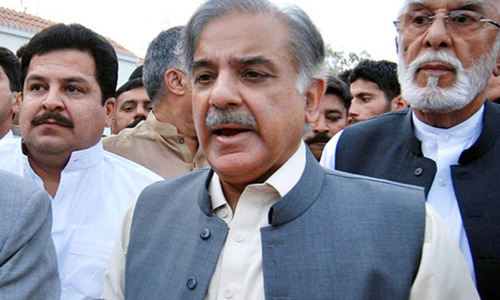Parliament is set to elect a new prime minister this week and another to replace the interim choice some two months from now.
While that will bring some welcome temporary focus on parliamentary proceedings in an era where the institution has slipped into virtual irrelevance, reasserting the primacy of parliament in the democratic order will require a serious legislative agenda.
The government and the opposition have a number of opportunities to work together, even in the polarised and bitter political climate in the country today. For one, the ouster of Nawaz Sharif has acted as a reminder that the Constitution, though significantly restored to its original democratic status by the 18th Amendment, has a number of distortions in it that ought to be removed.
In particular, the existence of vague religious references and standards of conduct expected of public officials should be addressed. The next parliament should not have to operate under a cloud of uncertainty.
There is also the vital issue of electoral reforms, changes that must for the sake of a stronger democratic order be introduced before the next general election. The parliamentary committee on electoral reforms has done extensive work; the report by a former chief justice of the Supreme Court, Nasirul Mulk, on opposition allegations of electoral fraud in 2013 identified a number of areas in which electoral laws and practices need strengthening; and a range of experts have made several important suggestions.
A comprehensive overhaul of the electoral system is within reach – if parliament makes it a priority. Surely, with the next scheduled general election less than a year away and the uncertainty that hangs over the political landscape now, a stronger electoral system is an urgent necessity.
Finally, the incoming prime ministers, first Shahid Khaqan Abbasi and then Shahbaz Sharif, must overhaul the government’s approach to parliament itself. The dismissive attitude of Nawaz Sharif towards parliament also quickly became the norm for his cabinet and as a result most parliamentarians lost interest in the proceedings of the house to which they owe their jobs.
During the last PPP government, former prime minister Yousuf Raza Gilani, despite having to operate in the shadow of a presidency occupied by his political boss, Asif Ali Zardari, strived to make parliament the centre of political activity.
Future prime ministers Mr Abbasi and Mr Sharif will also have to deal with the potential reality of the centre of political power lying outside parliament. Neither Mr Abbasi as federal minister (until recently), nor Mr Sharif as Punjab chief minister has proved to be a distinguished assemblyman. But the prime minister’s office is different and his seat in parliament special. Some of the lost parliamentary lustre must be restored.
Published in Dawn, July 31st, 2017













































